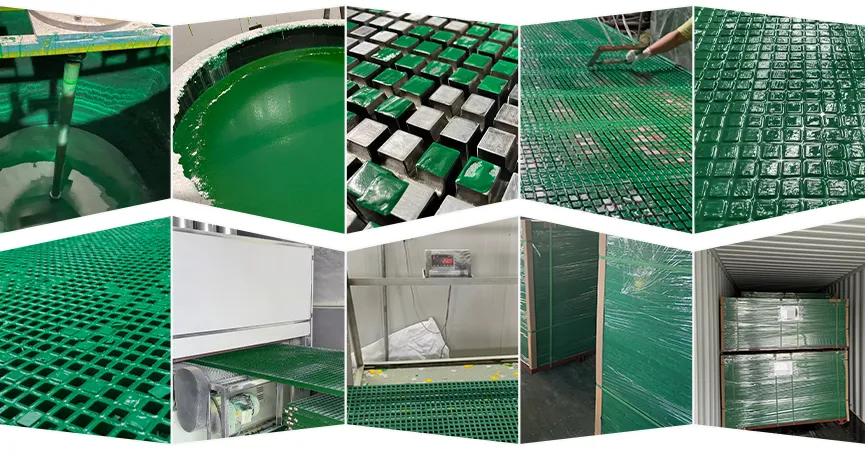loading...
- No. 9, Xingyuan South Street, Dongwaihuan Road, Zaoqiang County, Hengshui, Hebei, China
- admin@zjcomposites.com
- +86 15097380338
- Welcome to visit our website!
sectional cold water storage tanks
The Importance of Sectional Cold Water Storage Tanks
In various industries, the efficient storage of cold water is critical. Sectional cold water storage tanks have become a popular solution for many applications due to their versatility, ease of installation, and adaptability to different industrial needs. This article aims to provide an overview of sectional cold water storage tanks, their design features, benefits, and applications.
Design Features
Sectional cold water storage tanks are constructed from prefabricated panels, which are assembled on-site. This modular approach allows for flexibility, as the tank can be tailored to meet specific volume requirements. Typically made from materials such as fiberglass, stainless steel, or galvanized steel, these tanks are designed to withstand both environmental stress and the physical demands of cold water storage.
The sectional design also facilitates transportation and installation, particularly in locations with limited access. Each panel can be transported easily, and assembly requires minimal tools and effort. Once constructed, the tanks are reinforced and sealed to ensure water hygiene and prevent leaks.
Benefits of Sectional Cold Water Storage Tanks
1. Cost-Effectiveness One of the primary advantages of sectional cold water storage tanks is their cost-effectiveness. They are generally less expensive than traditional single-piece tanks, both in terms of manufacturing and shipping. This affordability makes them an attractive option for both small businesses and large industries.
2. Space Efficiency The modular design allows these tanks to be installed in a variety of environments, including urban areas with limited space. Different configurations can accommodate specific site requirements, maximizing the use of available space.
3. Customizable Capacity Sectional tanks can be built to exact specifications, offering the ability to scale the size according to current and future needs. This flexibility is especially valuable for businesses that anticipate growth or fluctuating water needs.
4. Ease of Maintenance An advantage of sectional tanks is their accessibility for maintenance and cleaning. Individual panels can often be replaced without the need to decommission the entire system. Regular maintenance ensures prolonged tank life and compliance with health regulations.
sectional cold water storage tanks

5. Durability and Resistance The materials used in the construction of sectional cold water storage tanks are chosen for their durability. Stainless steel, for example, resists corrosion and can withstand harsh environmental conditions, ensuring longevity and reliable performance.
Applications
Sectional cold water storage tanks are utilized in a variety of settings, demonstrating their versatility across multiple sectors
- Residential and Commercial Buildings These tanks are commonly found in buildings where large volumes of cold water are necessary for heating, cooling, and other purposes.
- Industrial Applications Industries such as food and beverage, pharmaceuticals, and manufacturing require consistent cold water supply for processes and cooling systems. Sectional tanks provide them with a reliable solution tailored to their specifications.
- Agriculture In agricultural settings, these tanks are used for irrigation systems, livestock cooling, and aquaculture, ensuring a constant supply of cold water, which is vital for the health of crops and animals.
- Fire Suppression Systems Sectional tanks can also serve as reservoirs for fire suppression systems, providing critical water storage available at a moment’s notice.
Conclusion
In summary, sectional cold water storage tanks are a significant advancement in water storage technology, offering numerous benefits across various sectors. Their flexibility, cost-effectiveness, and ease of maintenance make them an ideal choice for managing cold water needs efficiently. As industries continue to evolve and expand, it is likely that sectional cold water storage tanks will play an increasingly vital role in meeting the demands of modern water management systems. Whether for residential, commercial, or industrial use, the adaptability and reliability of these tanks ensure they remain a cornerstone of effective water storage solutions.
-
Transform Your Spaces with FRP Grating SolutionsNewsNov.04,2024
-
The Versatility and Strength of FRP RodsNewsNov.04,2024
-
The Excellence of Fiberglass Water TanksNewsNov.04,2024
-
The Benefits of FRP Grating for Your ProjectsNewsNov.04,2024
-
Elevate Your Efficiency with FRP Pressure VesselsNewsNov.04,2024
-
Welcome to the World of FRP Pressure VesselsNewsOct.12,2024
-
Unveiling the Future of Filtration: Why FRP Filter Vessels are a Game ChangerNewsOct.12,2024
